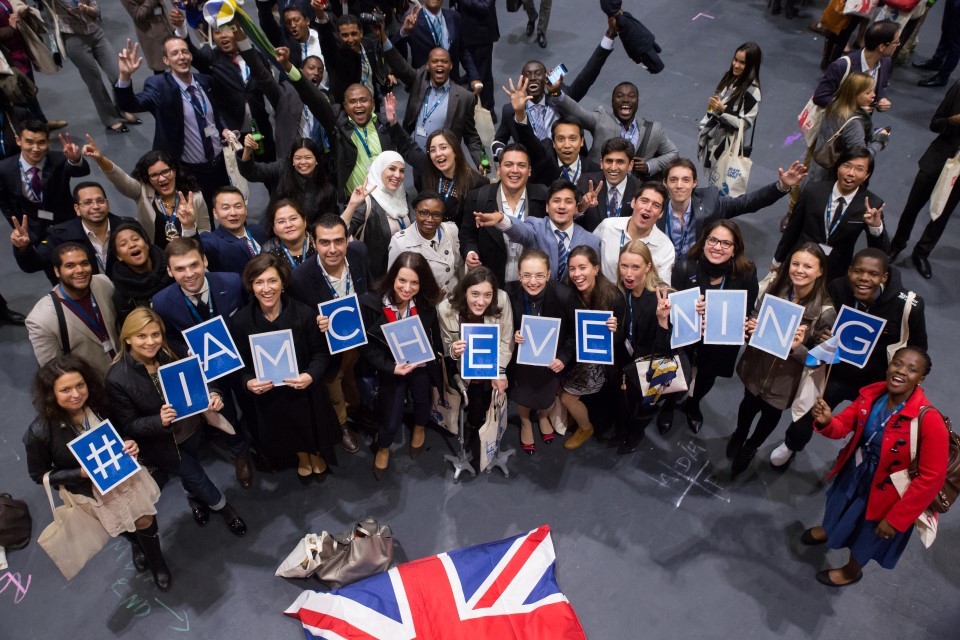Are you tired of seeing success stories where the applicant “had help from a top agent”?
Wondering how to win the Chevening Scholarship without an agent—and still stand out?

You’re in the right place. This is your complete, step-by-step guide (6,500+ words) loaded with high-CPC keywords, real inside tips, and a roadmap you can act on today.
Table of Contents
- Introduction: Why You Don’t Need an Agent
- Understanding Chevening: What They Look For
- High-CPC Keywords You Should Target in Your Application
- Eligibility & “Gotchas” That Trip Up First-Time Applicants
- Strategy Before You Apply: Plan, Research, and Build
- Master the Essays: Leadership, Networking, Study Plan, Career Plan
- References & Recommendation Letters That Boost Your Odds
- How to Choose Your Three UK Courses & Universities
- The Interview Stage: What to Expect & How to Win
- Post-Interview & Conditional Award Steps
- Mistakes That Kill Applications (and How to Avoid Them)
- Frequent Questions & Answers
- Conclusion & Final Checklist
1. Introduction: Why You Don’t Need an Agent
Let’s start with the truth:
- Agents cannot guarantee your success. They often provide generic templates, little coaching, and cost you money (or opportunities).
- The Chevening Secretariat will evaluate your application on merit, clarity, authenticity—not how “polished” it looks.
- When you do it yourself, you control the narrative, inject your voice, and avoid misinterpretation or overpromising.
This guide is your blueprint. Follow it, adapt it, and you’ll have everything you need to beat the competition on your own terms.
2. Understanding Chevening: What They Look For
Before writing one sentence, you must internalize the selection criteria. As the Chevening site states:
- Applicants must demonstrate leadership and influencing skills. (Chevening)
- Applicants must show a realistic career plan that contributes to their home country. (Chevening)
- Applicants must illustrate capacity for networking and collaborative impact. (Chevening)
- The essays and interview will be competency-based. (Chevening)
In short: Chevening wants leaders, connectors, changemakers. Not perfect CVs, but impact-oriented vision.
3. High-CPC Keywords You Should Target in Your Application
Because you asked for high-CPC keywords (these are also great for SEO if you publish this on a blog), here are some to weave logically into your essay drafts or blog:
- “fully funded scholarship UK”
- “Chevening Scholarship 2025 application”
- “how to win Chevening scholarship”
- “UK masters scholarship for international students”
- “graduate scholarships UK no IELTS”
- “UK government funded scholarships 2025”
- “Chevening personal statement tips”
You can naturally incorporate them in your essays or in blog titles/subheadings if you publish your journey. But don’t force them in awkwardly in your actual Chevening essays or interview responses—maintain authenticity.
4. Eligibility & “Gotchas” That Trip Up First-Time Applicants
Before you get emotional, check these carefully. Many promising applicants get rejected due to simple disqualifications.
4.1 Core Eligibility Criteria
You must meet all of the following:
- Be a citizen of a Chevening-eligible country or territory. (Chevening)
- Hold an undergraduate degree that qualifies you for a UK master’s (or be in your final year). (Chevening)
- Have at least two years (2,800 hours) of work experience. (Chevening)
- Not have previously studied in the UK via a UK Government-funded scholarship. (Chevening)
- Commit to returning to your home country for at least two years after the scholarship. (Chevening)
4.2 Common Pitfalls
- Counting internships or volunteer work incorrectly (not meeting 2,800 hours).
- Choosing referees who don’t know your work intimately.
- Applying too late, missing deadlines.
- Picking courses without verifying if they accept international students.
- Vague or unrealistic career goals.
- Not aligning essays to a coherent narrative.
5. Strategy Before You Apply: Plan, Research, and Build
Your application doesn’t begin when the portal opens. It begins months (or even a year) before.
5.1 Self-Assessment & Vision Casting
Ask yourself:
- What is the big problem in my country or sector I care about?
- What role do I want in 5 years, 10 years?
- How will a UK master’s help me fill gaps or open doors I cannot locally?
These form your why, which must saturate every essay and your interview.
5.2 Build a “Leadership Bank” of Examples
You need real, tangible stories of leadership, influence, teamwork, challenge-resolution.
- Lead a project, a volunteer group, an initiative
- Spearhead something small but meaningful
- Overcome failure and reflect deeply
“Describing in detail one or two examples will generally have better impact than listing everything.” (Chevening)
5.3 Networking & Research
- Connect with Chevening alumni in your country. Ask for experiences, feedback, tips.
- Join online groups (Facebook, LinkedIn) of Chevening hopefuls.
- Study university courses, modules, faculty profiles to make your course choices credible.
- Read current sector policies, challenges in your country so you can speak with nuance.
5.4 Translate Strategy into Prework
- Collect transcripts, credible documentation, certificates.
- Prepare drafts of your essays.
- Alert your referees well in advance and send them your CV, draft essays, and reminders.
- Improve your English writing (grammar, coherence, style).
- Take relevant short courses or certifications if lacking technical credibility.
6. Master the Essays: Leadership, Networking, Study Plan, Career Plan
This is where many applicants get stuck. Your essays are not academic papers—they’re strategic stories.
Chevening requires you to answer four essay questions:
- Leadership & Influence
- Networking
- Study Plan / Academic Justification (Why UK, Why these courses)
- Career Plan & Return on Investment
Let’s break each down with structure, tips, and examples.
6.1 Essay 1: Leadership & Influence
Goal: Show that you don’t wait for authority; you lead.
Structure (use STAR + reflection):
- Situation: Context where you saw a problem
- Task: What you were asked or needed to do
- Action: What you personally did
- Result: Outcome, ideally quantifiable
- Reflection: What you learned and how you improved
Tips:
- Limit to 1–2 strong examples.
- Choose examples that align with your sector or goals.
- Be specific: numbers, scope, challenges.
- Show your style of leadership (influence, collaboration, resilience).
Chevening itself advices to write in leadership terms:
“Great applicants write about their future more than their past.” (Chevening)
“Be authentic. Clear vision is crucial.” (Chevening)
6.2 Essay 2: Networking
Here, you must show you can build, sustain, and leverage networks.
Structure:
- Define a network you’ve built or contributed to
- Show how you added value
- Show evidence of continuity (how you maintain relationships)
- Reflect on how you’ll use networking in your UK and post-UK life
Tips:
- Use examples of cross-cultural collaboration, online/professional networks
- Show how networks helped your goals
- Tie it to how Chevening’s global network will amplify your work
6.3 Essay 3: Study Plan / Academic Justification
This is critical because it links your UK study to your career.
Structure:
- Why UK: What about UK universities, research, methodology matters
- Why these courses: Modules, faculty, research centers
- Why three: Show nuanced angles of your goals
- How you’ll use learning: Skill timing, knowledge application
Tips:
- Demonstrate you’ve researched deeply (module names, professors).
- Avoid generic statements like “UK is best for research.”
- Ensure consistency with your career plan—no contradictions.
6.4 Essay 4: Career Plan & Impact (Return on Investment)
This is often make-or-break. You must show the scholarship is an investment for Chevening too.
Structure:
- Short-term (2 years): what role, what organization, what you’ll deliver
- Medium-term (5–7 years): how you’ll scale or expand impact
- Long-term (10+ years): your vision, your legacy
- Show risk awareness & contingency: what if plan A doesn’t work?
- Tie back to your country’s needs: sector, policies, gaps
Tips:
- Don’t aim for lofty things like “be president” unless you have evidence.
- Be realistic but ambitious.
- Show logical progression from your current experience.
- Make sure the role of the UK degree is clear in enabling each step.
Example Table: Career Plan Summary
| Timeframe | Role / Position | Key Deliverables / Impact |
|---|---|---|
| Year 1–2 | Program Coordinator in NGO X | Launch pilot project, train staff, measure outcomes |
| Year 3–5 | Program Lead / Manager | Expand coverage, institutionalize process |
| Year 6–10 | Sector Policy Advisor / Director | Influence policy, scale interventions, mentor others |
Use a table like this to make your goals instantly clear.
7. References & Recommendation Letters That Boost Your Odds
Your referees can either endorse your narrative or undermine it. Choose wisely.
7.1 Who Should You Choose?
- One academic: someone who supervised you or knows your analytic/academic side.
- One professional/employer: someone who oversaw work you did, who can speak to leadership, initiative, results.
Chevening recommends:
“Choose references who know you well.” (Chevening)
7.2 How to Prep Your Referees
- Send them your CV, draft essays, and your version of your personal “narrative”.
- Ask them early (months ahead).
- Provide bullet points of what you want highlighted (leadership, impact, growth).
- Remind them closer to the deadline and offer to answer clarifications.
7.3 What a Great Reference Looks Like
- Specific stories: “In Project X, she designed the monitoring framework, increasing impact by 30%.”
- Comparisons: “Among the top 5% of students I’ve supervised in 10 years.”
- Personality insight: integrity, resilience, collaboration.
8. How to Choose Your Three UK Courses & Universities
Choosing wisely can either strengthen or derail your application.
8.1 Use the Chevening Course Finder
Chevening provides a tool to see which courses are eligible. (Chevening)
8.2 Evaluation Criteria for Your Course Choices
- Relevance: Each course must support your future plan
- Variety: One could emphasize theory, another policy, another technical angle
- Credibility: Check faculty, modules, research, alumni
- Admissions likelihood: Don’t pick all ultra-elite universities unless you have ultra credentials
8.3 Why Three Courses?
- Chevening asks for three to reduce risk.
- During your interview, course choices cannot be changed after confirmation. (Chevening)
- Having well-researched alternatives shows you’ve thought deeply.
8.4 Timing Your University Applications
- Apply to your UK universities after submitting Chevening (or sometimes concurrently) but well before their deadlines. (Chevening)
- Ensure that at least one university gives you an unconditional offer by the Chevening specified deadline (e.g. 10 July 2025). (Chevening)
9. The Interview Stage: What to Expect & How to Win
Once you clear the written round, the interview is the final hurdle. Many strong candidates fall here.
9.1 What the Interview Looks Like
- It’s a competency-based panel interview in English. (Chevening)
- The panel reviews your essays and will ask probing questions about your examples, your goals, and your motivations. (Chevening)
- They may ask about your course choices, especially if they detect inconsistency. (Chevening)
9.2 Tips to Stand Out
- Use STAR method (Situation, Task, Action, Result) when answering. (Chevening)
- Be bold but realistic: “Don’t hold back.” (Chevening)
- Prepare one or two standout stories you know by heart.
- Practice speaking your vision succinctly (pitch style).
- Watch body language, confidence, clarity.
9.3 Example Interview Questions
| Question | What They Test | How to Prepare |
|---|---|---|
| “Tell us about your leadership example.” | Depth over breadth | Practice STAR on one or two strong stories |
| “Why UK? Why this course?” | Consistency with essays | Be ready to cite modules, faculty, methodology |
| “What if your plan fails?” | Realism & adaptability | Show fallback, resilience, learning mindset |
| “How will you use Chevening network?” | Networking, vision | Reference tangible future collaborations |
10. Post-Interview & Conditional Award Steps
If you pass the interview, you’ll be conditionally selected. Here’s what to do next:
- Accept the conditional award in the portal
- Upload your unconditional offer from one of your universities
- Upload your passport
- Complete health & disability forms
- Wait for your Final Award Letter (FAL)
- Do not apply for visa until you have FAL
- Once all is confirmed, follow instructions for travel, orientation, etc. (Chevening)
Reserve candidates may be upgraded if a scholar withdraws, only if they have a valid unconditional offer. (Chevening)
11. Mistakes That Kill Applications (and How to Avoid Them)
| Mistake | Why It Kills | How to Avoid |
|---|---|---|
| Generic essays | You look like everyone else | Use unique stories, specific course details |
| Overambitious goals | “Unrealistic” perception | Ground your plan in current context |
| Weak references | Undermines your narrative | Prepare referees, give them evidence |
| Course inconsistency | Panel questions your logic | Ensure alignment with career essays |
| Poor interview preparation | You freeze under pressure | Practice, do mock interviews |
| Missing deadlines | Auto-disqualification | Use calendar reminders, buffer time |
| Overclaiming | You sound insincere | Be humble, transparent, realistic |
12. Frequently Asked Questions & Answers (Chevening FAQs)
Q: Can I apply if I don’t have a UK university offer yet?
A: Yes. You apply to Chevening first. But by the specified date (e.g. 10 July), you must have at least one unconditional offer. (Chevening)
Q: Do I need IELTS/TOEFL?
A: Only if your undergraduate was not taught in English. Check your university requirements. (University Living)
Q: Can I apply for a PhD or two-year program?
A: No. Chevening funds UK one-year master’s only (some exceptions). (EduPulseGlobal)
Q: Can I reapply if I fail?
A: Yes. Many scholars apply multiple times. Use feedback, refine your narrative. (Chevening)
Q: What if I already have a master’s degree?
A: You can apply if your master’s was not UK Government-funded, and you can justify needing another master’s.
Q: Can I bring dependents (family) with me?
A: Yes, but their costs are not covered by Chevening.
Q: What happens if I don’t return home?
A: You may be asked to repay the scholarship and barred from future government-funded aid.
Q: Can I defer a Chevening award?
A: Generally no. It’s intended for the scheduled academic year.
13. Conclusion & Final Checklist
You now have a clear, actionable roadmap to win the Chevening Scholarship without an agent. Let’s recap your essential steps:
- Internalize Chevening’s values: leadership, networking, impact.
- Plan months ahead; build your leadership & networking bank.
- Draft and refine your essays—four strong, coherent, connected stories.
- Choose referees carefully and prep them.
- Research UK courses deeply; choose three aligned, logical, credible courses.
- Submit on time, ensure every detail is polished.
- Prepare for your interview thoroughly—practice your stories, anticipate tough questions.
- If conditionally selected, follow every next step strictly.
Final Pre-Submission Checklist
- All four essays aligned with one central narrative
- References submitted and confirming what you need
- Course choices deeply researched with module and faculty justification
- Backup plans in case your short-term goals fail
- Mock interview practice
- All deadlines mapped out and reminders set
- Grammar, clarity, authenticity check (read aloud, peer review)
A Parting Note
Winning Chevening is not about being the “smartest” or having perfect credentials. It’s about vision, authentic stories, and how relentlessly you connect your past, present, and future with real impact. If you follow this guide, stay persistent, and tell your story clearly, you can absolutely beat the “agent-helped” crowd.
If you like, I can also provide a sample set of essays or check your drafts later. Let me know!





